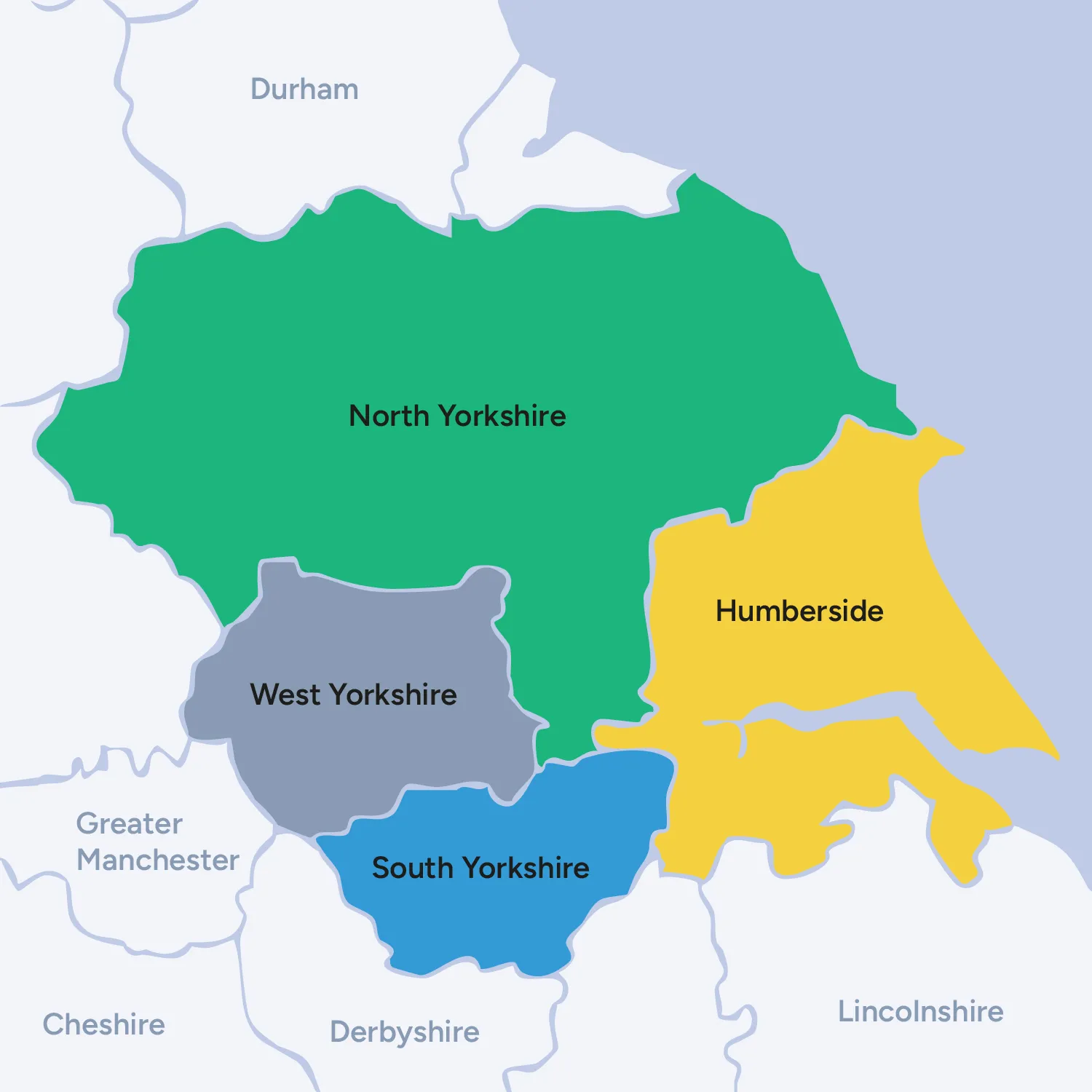Yorkshire and Humberside
The Crown Prosecution Service (CPS) is the main prosecuting authority in England and Wales. We work with all agencies in the criminal justice system, and liaise closely with the police, although we are independent from them.
The CPS has 14 operating Areas across England and Wales. CPS Yorkshire and Humberside is one of the largest CPS Areas outside London, serving a population of over five million. The Area covers West Yorkshire, North Yorkshire, South Yorkshire, East Yorkshire, the Humber, and North East Lincolnshire.

Latest news
Regional Community Panels
We have three regional, thematic scrutiny panels, who inform our work on hate crime, domestic abuse and rape.
Panel members are drawn from a wide cross-section of community groups including charities, inter-agency partnerships and local authorities.
The overall remit of each panel is to scrutinise CPS casework and decision-making to improve performance and ensure the delivery of our Core Quality Standards. Panel members will undertake the following activities in relation to their specialist area of casework:
- Review and scrutinise non-active CPS case files;
- Identify issues, common themes and trends in the decision-making process, looking in particular at the impact of CPS decision-making on diverse communities;
- Make recommendations to the CPS to improve CPS performance and support to victims and witnesses;
- Provide feedback to colleagues and communities on the results of the panel and actions taken by the CPS in response to the panels observations and recommendations.
The panels meet between two and three times a year.
Victims and Witnesses
Witness Care Units
Witness Care Units (WCUs) provide practical help and moral support to victims and witnesses.
The Units provide:
- Witness Care Officers who act as a single point of contact for a victim or witness throughout the life of a case from the point of charge through any court proceedings that may follow. They will help individuals through the criminal justice process and coordinate support and services.
- A full 'needs assessment' to identify exactly what help victims and witnesses require to ensure they can attend court. This could include practical difficulties such as provision of child care, transport, help with language difficulties, medical problems and areas of concern, including possible intimidation
- Continuous review of victim and witness needs throughout the case by the CPS and police
- Greater communication and contact with witnesses about cases including the case outcome or trial result.
Victims' Right to Review
The VRR scheme makes it easier for victims to seek a review of a CPS decision not to bring charges or to terminate proceedings.
If you are a victim seeking to exercise your right to request a review of a CPS decision not to bring charges, discontinue proceedings or offer no evidence in a case please first see our Victims Right to Review page for more information.
For VRR enquiries and applications, please use the Contact page on this website in the first instance.
Yorkshire & Humberside contact point for Victims' Right to Review enquiries:
Email: [email protected]
Please note that the scheme applies only in relation to qualifying decisions made on or after 5 June 2013.
Victim Personal Statements
What are they?
Victim Personal Statements are optional written statements which give the victim an opportunity to say how they have been affected by the crime: physically, emotionally or financially.
They may wish to talk about their fear of intimidation, concerns about bail and whether they would like help from a support agency.
Victim Personal Statements provide additional information to that given by the victim in their statement to the police.
Who can make a Victim Personal Statement?
Anyone who has been a victim of crime and who has made a statement to police has the opportunity to give a Victim Personal Statement.
What happens once a Victim Personal Statement has been taken?
The Victim Personal Statement becomes part of the case papers and is seen by the Police, defence lawyers, magistrates and judges at court.
What does the CPS do with the Victim Personal Statement?
We take into account what the victim says when we make decisions on the case and ensure that, where appropriate, the court is aware of the contents of the statement so this can be considered, for example, in sentencing.
Special Measures
In some cases people require special measures to be taken to help them give evidence. Special Measures can sometimes be available to victims and witnesses that are vulnerable or intimidated.
The Code of Practice for Victims of Crime defines vulnerable victims as those under 17 years of age or those with a physical or mental disability or disorder, including learning difficulties, whose quality of evidence is likely to be reduced if the special measures are not taken. The victims of domestic violence and the family of murder and manslaughter victims are also classed as vulnerable.
Intimidated victims also qualify for special measures and these are defined as people whose evidence will be hindered by being in fear of the defendant or who are in distress about giving evidence.


